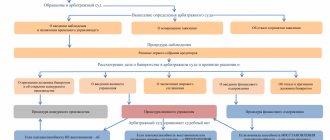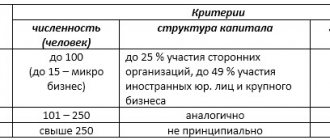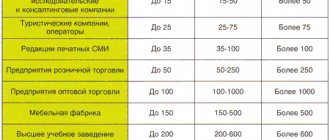Let's consider the main types of additional education that are relevant in the economic and social situation currently prevailing in the country.
In an era of technical innovation and increasing competition, there is a need to re-confirm one’s professional suitability.
That is why additional vocational education becomes essential. It allows specialists to increase their level of professionalism, acquire new skills and knowledge that give them the right to work in a new field.
Theoretical aspects
Additional professional education is one of the forms of postgraduate education. It is addressed to those people who already have a first basic secondary or higher education.
Additional vocational education is an organized and sustainable process of acquiring new skills, abilities, and knowledge that allow a person to fully develop and realize himself, to self-determinate professionally, socially, and personally.
This process has a high degree of flexibility. Modern additional education adapts to the needs of the target audience; it is independent in the selection of methods, forms, and teaching aids. It becomes possible to combine a high level of motivation for learning with effective methods of professional and personal learning.
How to learn an additional profession for free - 4 working methods
To get a new profession inexpensively and with maximum comfort, and even better - for free, you need to know how to do it.
In this article I will talk about some of them.
Method 1. Educate yourself
“Any real education is achieved only through self-education,” noted the famous Russian book scholar and writer N.A. Rubakin. This is fully true for additional professional education.
A properly organized process is a guarantee of results. I recommend professional self-education in several ways.
Methods of professional self-education:
- read specialized literature in the area of your professional interests;
- attend free online classes and webinars taught by experts;
- do not ignore participation in professional communities and associations;
- do not miss conferences and seminars, they are often held by training companies for advertising purposes completely free of charge;
- Learn from your colleagues’ experience and offer your help. This way you can learn new skills without spending any money.
Remember : such an integrated approach will give the desired result only with high self-discipline and initiative.
Method 2. Study online
On the Internet, like in Greece, everything is available! This includes free vocational training. Teachers and accountants, cosmetologists and social network administrators can improve their skills without spending their hard earned money.
Courses on YouTube, master classes, freely accessible electronic libraries - all this will help you! There are many educational institutions that teach for free, and some of them even issue certificates.
A selection of offers for free distance learning:
| № | Educational institution | Name of courses |
| 1 | UNESCO Institute | Information and communication technologies in education; Cloud computing in education; open educational resources; Basics of developing electronic educational resources, etc. |
| 2 | National Open University "INTUIT" | Web design; Information Security; IT consultant; Web application development; IT project management; 1C accounting 8.1, etc. |
| 3 | Foxford Online Learning Center | For teachers: Olympiad and Unified State Exam preparation; subject courses, etc. |
Choose the right ones! And forward - to improving your professional skills or acquiring a new profession!
Method 3: Use charitable training
There is also the possibility of free additional education, such as charitable training. This format consists of seminars, conferences, courses conducted by large companies.
Such events are freely accessible. Keep an eye out for similar announcements to be among the first to sign up.
Method 4. Take advantage of benefits for additional education
For certain categories of citizens of the Russian Federation there are benefits for additional education. The list of beneficiaries is determined by law. For example, military personnel, orphans, etc.
If you are entitled to them, be sure to exercise your right.
In conclusion, I would like to note: obtaining a new profession in the ways that I have described is not possible in all cases. So, for example, you cannot become a surgeon, but you can become a web designer or copywriter.
In the video you will find a lot of additional useful information.
Types of additional education
Let's consider the main types of additional education:
- professional retraining, which implies the issuance of a state diploma;
- short-term advanced training with obtaining a certificate for programs in the amount of 72-100 academic hours, as well as a certificate of retraining for programs of 100-500 hours;
- courses, seminars, trainings, master classes that require the issuance of a certificate.
All types of additional education are associated with obtaining additional information on educational programs that provide for the study of specific disciplines, departments of science, and technologies that are necessary for the high-quality implementation of new qualification requirements.
The difference between additional education and other forms of postgraduate education
Additional vocational education is one of the options for postgraduate training. This method of advanced training is typical for workers who want to learn new secrets in their chosen field of activity.
Its main difference from other types of postgraduate education is voluntariness. Advanced training is often mandatory for many specialists. Obtaining additional education in addition to an existing diploma allows you to successfully compete in the labor market, offering much more professional services.
Features of the educational process
Various forms of additional education have been developed by the country’s Ministry of Education in the form of a convenient, fast, inexpensive option for obtaining a second education and mastering a new specialty.
They differ significantly from the second higher education in terms of study duration. Continuing education courses require a short period of study, they are filled with specific subjects that are close to practice, and they are significantly lower in cost.
After completing the course, you can count on a state diploma of professional retraining, which gives its owner greater competitiveness in the modern labor market.
The property of this document is such that an additional specialty is equal to the main specialty and gives the right to engage in a specific type of activity.
What is additional professional education
Additional education in a professional field is a very relevant type of activity, which is becoming more and more in demand every year. The thing is that this type of activity is aimed at providing new skills and abilities for professional employees. In this case, the possibility of acquiring new skills is projected, taking into account the professional needs of modern development, as well as the requirements of the manager and the demands of the labor market. In other words, having received a higher education, an employee can get a job and cope well with the responsibilities assigned to him. Nevertheless, innovative implementations appear in the work of enterprises and companies constantly, and the employee needs to adapt to new needs, taking into account his professional direction. Additional education allows you to gain new knowledge in your profession, taking into account innovative developments that are used today. The employee gains new knowledge, which makes him more in demand, since he can carry out a lot of different assignments. Through such training, you can also master a new profession, which will expand the range of opportunities for a professional and help him reach a new level of earnings and progressive career growth.
Additional education is offered today by many centers. There are specialized programs that involve providing only specific and clear knowledge in a certain area, as well as minimizing the time spent on training. It is these programs that allow you to gain the maximum amount of knowledge with a minimum amount of time. Such programs are available to those who already have a secondary specialized or higher education or are studying at a university. Accordingly, the use of such education in the process of self-improvement allows one to open up new boundaries of possibilities. A person who has several types of diplomas will always be able to find a job, will be valued by the employer, and will be able to efficiently perform the tasks assigned to him.
It must certainly be said that for certain professions there are professional standards that require additional training after a clearly defined amount of time. The whole point is that new methods are being developed that were not studied at the university, which means that a person needs to gain new knowledge, thanks to which he will be able to use innovations in practice. In certain cases, additional education is provided at the expense of the employer. For example, standards have been established for the need for teachers and educators to undergo such training; they undergo the procedure for improving their qualifications at the expense of the state. At large enterprises, managers also often use the option of improving the qualifications of leading employees in order to obtain prospects for a high level of performance of the entire department or structural unit.
When there is a need for additional training:
- In the case when a specialist is appointed to a new position, which requires the acquisition of a number of additional skills, abilities and knowledge. Through a well-chosen program of advanced training courses, a specialist will be able to objectively assess the tasks assigned to him and choose the right ways to solve them;
- In case there is a career reserve, but the specialist who is planning to be transferred to a new position has a related profession. In this situation, the most rational and correct option would be retraining, which will allow the employee to master all the necessary nuances of the new profession;
- When there is a need to introduce innovative methods, technologies, equipment, but there are no specialists who can work with them. In this case, advanced training courses allow specialists to gain the necessary knowledge and skills through which they will be able to use innovations in practice.
Thus, it becomes clear that additional vocational education is a process of acquiring new knowledge and skills of a professional nature, based on knowledge already acquired and taking into account the needs of the workplace, innovative implementations, etc. In certain cases, the process of completing such training is carried out based on the decision of management . In this case, the manager carries out the process of paying for the courses. Often, a company carries out the process of signing contractual relationships with training centers in order to gain prospects for savings on training its employees. Training centers receive a kind of guarantee that they will have students, and on this basis provide significant discounts to the customer.
If a person independently decides on the need to improve his skills and abilities, taking into account the characteristics of the workplace, the desire to receive more intensive career growth, etc., then in this case he has the opportunity to independently choose a center for receiving additional education and independently choose the course that suits him. needed. In this case, training is paid for independently.
We certainly note that a person who has a higher education and several qualification diplomas, retraining courses, becomes very in demand in the labor market, and he can also qualify for rapid career growth. It is for this reason that it is imperative to consider the option of obtaining additional education as an element of your own development. It should be noted that the cost of such training is many times more affordable than the cost of training at universities, and the training period is also minimal (from 72 hours). Another undeniable advantage is the opportunity to receive education remotely. This means that you will be able to develop without interrupting your work. Many training centers even offer the opportunity to study in installments. So, it’s definitely worth considering the option of such an education.
Completion of additional training
Students who successfully complete the course can expect to receive one of the following government-issued documents:
- for persons who have completed short-term training or participated in problem-based and thematic seminars in the amount of 72-100 hours;
- certificate of advanced training for persons who have completed training for 72-100 hours.
Levels BEFORE
Additional education is part of the system of continuous educational process, which consists of the following levels:
- preschool (kindergarten);
- primary (junior grades);
- basic (9 classes);
- general secondary (11 grades);
- secondary vocational (secondary vocational education – colleges, technical schools, schools);
- higher (universities).
Moreover, for each of these levels - from preschool to higher education - corresponding additional education programs are developed, and upon completion of their study, the level of existing basic education does not increase.
This means that a ninth-grader who has received a certificate of robotics courses will remain the owner of a basic education, and an eleventh-grader who has studied a foreign language for five years will remain the owner of a general secondary education. A college graduate who has completed an advanced training program will not receive a university diploma or the corresponding qualification. A bachelor's degree will not become a master's degree after professional retraining.
Specifics of seminars and trainings
Continuing education courses involve an active and intensive form of learning. Seminars and trainings are attended by adults who are aimed at practical mastery of the techniques for using a particular technology. This form is characterized by the activity of the participants in the classes, maximum attention is paid to the acquisition of practical skills.
At seminars and trainings, the learning process is carried out in the mode of specific actions, analysis of acquired experience, feedback from students, which allows you to analyze your strategies and methods with other people, and learn certain lessons.
Intellectual and mental nourishment of knowledge, giving impetus to different ideas, will increase the professional level.
Within the framework of seminars and trainings, additional education technologies are used, which allow students to fully master ways of thinking and behavior patterns, get acquainted with innovations in various professional fields, discover internal resources, and exchange experiences.
Master classes are conducted by experts who are specialists in a particular field. They are able not only to share their experience, but also to help listeners find ways to eliminate errors that arise. The master class ends with the issuance of certificates to all participants. The sociocultural situation that currently exists in our country is characterized by information saturation, various educational opportunities for different segments of the population, including traditional additional education.
Additional education for children
Currently, there are various types of additional education institutions designed for the development and education of children of preschool and school age.
In addition to studying at school, children can attend various sections and clubs offered at the Moscow Center for Educational Education. This budgetary additional education provides children with a free opportunity for development and self-improvement. In any city in Russia there are centers where children learn choreography, performing arts, and master the technology of knitting and sewing.
A municipal budgetary institution of additional education helps to improve a person’s cultural and educational level and allows children to deepen their knowledge in a specific area.
Recently, professional continuing education has become popular: school – university – postgraduate training – postgraduate training. Such a scheme is achieved with the help of the tools available to the field of additional education.
Advantages
A distinctive feature of additional education is the fact that those institutions that offer citizens of our country to improve their professional level use training courses whose volume does not exceed 1000 hours.
This is an excellent start for the economic and professional growth of the younger generation, who have not yet decided on their main specialty.
Responsibility of the preschool educational institution
In addition to educational services, organizations that provide additional training services are responsible for:
- patriotic, spiritual, labor education of the younger generation;
- vocational guidance for teenagers;
- formation of children's creative potential;
- organization of extracurricular activities for schoolchildren;
- retraining, advanced training, internship of specialists;
- acquisition of new knowledge, development of professionalism in a specific field of activity.
Responsibilities of the employer for additional training of employees
For a certain category of specialists, regular advanced training is mandatory. Additional professional education of workers in these categories is the responsibility of the employer. It is he who must provide all the necessary conditions.
Categories of specialists required to undergo additional training:
- Medical workers - senior and nursing staff.
- Pedagogical workers - teachers, university professors and teachers of preschool educational institutions.
- Civil servants.
- Workers associated with dangerous and special working conditions.
Upon completion of training, they are presented with an identification document, which serves as justification for the provision of compensation.
In cases where the law does not provide for mandatory additional training, the employer himself decides on the need and frequency of courses for his employees. Typically, this issue is enshrined in local regulatory documents, for example, a charter or a collective labor agreement.
Advanced training is carried out for specialists at least once every five years. Most often, the employer organizes mass training for its employees. It is important to remember that study time is paid, even if it falls on weekends or holidays. Specialists can undergo additional professional training on their own initiative and in their free time. In this case, the employer is not obliged to pay for working time spent on study.
Forms of training
Currently in Russia, additional education exists in the following forms:
- full-time (daytime, evening, weekend);
- remote;
- correspondence
Creative associations. These organizations are created for individual personal growth, the development of children, and the formation of moral and spiritual values in them. Children are united into groups based on their interests and are trained according to a special program. For example, research clubs are created within public schools. Children attending classes receive theoretical knowledge necessary for carrying out research and design activities, conduct practical experiments and experiments, formalize them, and present the results at research conferences.
The Sunday lecture involves conducting an overview conversation on a specific issue. The audience at the lecture can be varied - from first-graders to the elderly.
The seminar assumes the form of educational and practical exercises, during which messages and reports prepared by specialists are discussed.
Conferences are pre-planned meetings by representatives of one educational institution aimed at discussing a specific issue. Currently there are different types of conferences:
- video conference;
- online;
- business conference;
- press conference;
- echo conference;
- conference call.
Advantages of receiving additional education abroad
Continuing education programs abroad offer both full-time and distance learning. Advanced training centers usually operate at universities.
Advantages of additional training abroad:
- improving a foreign language;
- current knowledge;
- high standards of training;
- short programs;
- in person - new useful acquaintances;
- prestigious diploma.
The bonus of studying in additional education programs in Germany is comfort and relatively low costs of accommodation and food.
Structures of additional education within educational institutions
Among the elements are creative laboratories, electives, research centers, associations, and hobby centers.
This model is interesting because all groups function on the basis of a regular secondary school. Not only schoolchildren, but also their mentors and parents take an active part in creative expeditions, research laboratories, and interest groups.
Guarantees for employees undergoing additional training
Laws and other regulatory documents provide certain guarantees to employees receiving additional professional education. First of all, it is maintaining a job while studying away from work. In addition, not only the position is retained, but also the average salary. Of course, no one can oblige the employer to pay bonuses and bonuses, but the basic salary for the entire period of study is required to be paid.
If an employee is sent to another location for additional training, the employer is required to pay travel expenses. This includes travel to and from the place of study if it is located outside the locality of the main work. In addition, expenses for hotel accommodation and, in some cases, food are reimbursed.









